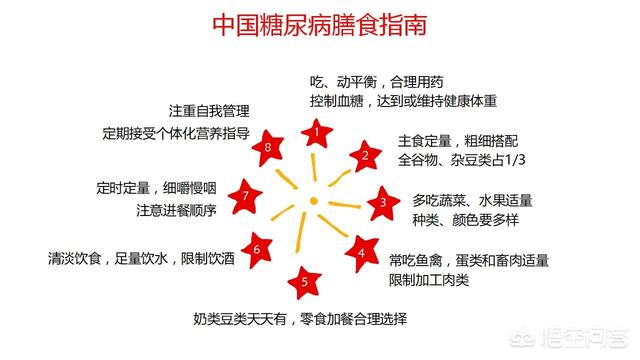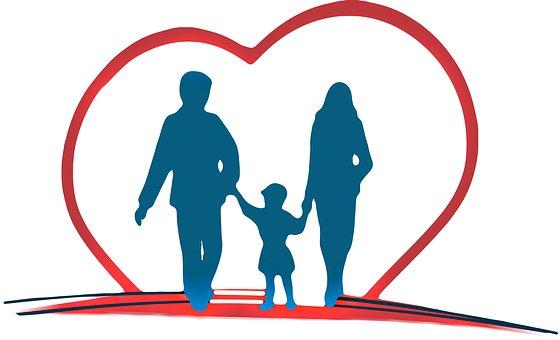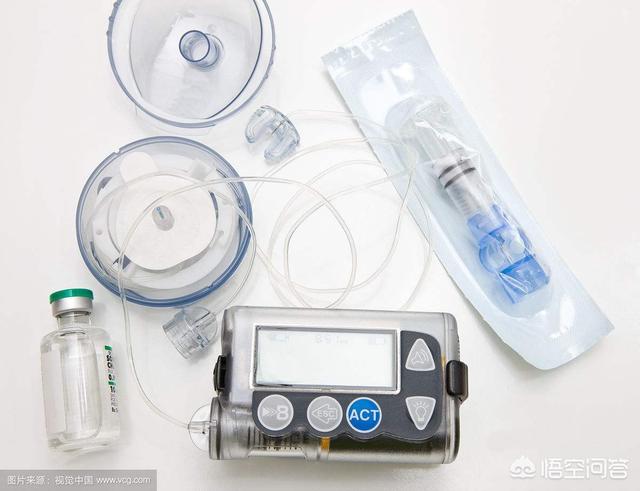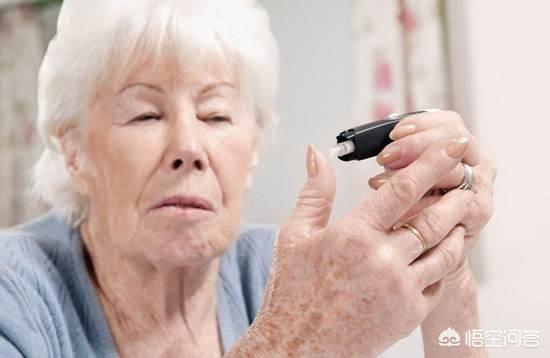How to put diabetes in perspective?
How to put diabetes in perspective? 
Nowadays, more and more people are suffering from diabetes, but many people can't look at diabetes correctly, which leads to the deterioration of the condition is also more common, then exactly how to look at diabetes correctly?
First, first of all, we must correctly recognize diabetes, there are many people in the early detection of diabetes are ignored attitude, that diabetes is not a serious disease, and now the standard of living has improved, these diseases are very normal. In fact, this is a big mistake, early diabetes will not give patients too much pain, but no treatment, has been delayed to the late then, then the patient's pain is doubled, so to recognize diabetes, to take positive treatment.
Second, to establish confidence in treatment. There are some people diagnosed with diabetes and are in a state of anxiety and tension all day long, in fact, this mentality is not conducive to the treatment of the disease, but will drag down the body. Diabetes is not a terminal disease, as long as you cooperate with the doctor in the early stage of treatment, the hope of cure is very big, in the later stage of the case is also a hope of cure, the key is not only the treatment method, and the patient's mentality.
Third, diabetes can induce other complications, which is often overlooked, so suffering from diabetes, do not only focus on this aspect of the treatment, love to prevent other complications, do a good job of prevention. Otherwise induced other complications will lead to further deterioration of the patient's condition, the difficulty of treatment will be greatly increased, the hope of cure will also be reduced.
These are a few things to look at diabetes correctly, I hope that all patients diagnosed with diabetes should not be discouraged, actively cooperate with the doctor's treatment, and build up the confidence of treatment.
Instructor: Yingze Zhang, Deputy Chief Physician, Department of Endocrinology, Baoding First Hospital of Traditional Chinese Medicine, Baoding, China.
He specializes in the treatment of diabetes mellitus and its complications, thyroid disorders and other endocrine metabolic disorders, and miscellaneous diseases in Chinese medicine through the combination of Chinese and Western medicine.
If you find this article useful, please feel free to like or recommend it to your friends and follow [Medlink Media].
There is no need to panic when you have diabetes.
Because of various factors in the body, our blood sugar changes and fluctuates, both for people with healthy blood sugar and for sugar addicts who have diabetes.
It's just that for people with healthy blood sugar, their own pancreatic cells are so smart that they automatically adjust to the cause of the imbalance and bring their blood sugar back into balance quickly;
In the case of sugar users, blood sugar becomes unhealthy and unstable because of impaired pancreatic islet cell function, or organ insensitivity to insulin, which diminishes the ability to regulate blood sugar balance.
Therefore, for those who have diabetes, it is important to do the following:
1. Adaptation of a positive mental state
A sunny mindset is the beginning of a healthy life, to be sure that you have the ability to manage your diabetes and use that ability to accomplish self-management of your life's sugar control. The earlier you manage, the better the outcome. The treatment program depends on the doctor, life management depends on the individual.

2. Determine appropriate sugar control goals
The ultimate goal of managing diabetes mellitus is to prevent and delay the occurrence and development of various complications. According to one's current situation, one should determine the near-term goals of glycemic control (including: blood glucose, blood pressure, blood lipids, body mass index, etc.) and the screening of complications in the long term (including: heart, brain, kidneys, eyes, feet, nerves, etc.).

3. Mastering the full range of sugar control techniques
To manage diabetes, you must firstRecognizing and understanding diabetes, in particular, to find the relevant factors (including: diet, hormones and stress, exercise, medications, etc.) that influence one's blood sugar fluctuations. Then take charge ofKnowledge and skills to regulate the various factors of blood glucose and practice them in daily life. Finally.Adopt healthy, regular habits and be a healthy person with sugar.

The above answers were provided by Ms. Lydia Yang, Chief Diabetes Educator at MicroSugar
If you have any questions about diabetes, you can find our Ms. Yang teaching oh ~ she is committed to the field of diabetes education work for many years, loved by the sugar lovers.

Follow us on Microsugar - Smile in the Face of Diabetes
The first step in the treatment of a disease is to recognize the disease, and only after a comprehensive understanding and correct understanding of the disease can we have a good mindset and positive treatment awareness. As a chronic disease, diabetes is not like the common diseases we see, it is known for its long duration and many complications.

So how exactly do we recognize diabetes properly? First of all we need to have an overall understanding of it, this disease may not be like our common diseases that can be cured in a short period of time through medication and other treatment operations. Once our diabetes patients need to be treated with medication all the time. And our diabetic patients in the beginning may not have any specific symptoms, we are familiar with the three more and one less will not be very obvious. At best, many patients notice a change in their eating habits (eating more, drinking more, urinating more, but not gaining weight).

In addition to the above symptoms, we work in the clinical work of the most common or many patients have occurred serious complications of diabetes (diabetic retinopathy, diabetic nephropathy, etc.) will come to the hospital for medical treatment, this time to the hospital for medical treatment is often not very effective. So we should also have a realization that once we find ourselves suffering from diabetes we have to treat it, and the medication can not be stopped, never one or two blood glucose measurements as an indication of stopping the medication. Real-time dynamic monitoring of blood glucose, found that blood glucose control is not good in time to the hospital to change the treatment program.

Finally, it should be emphasized that we also need to control blood sugar through a combination of dietary lifestyle habits, keeping our mouths shut (less sugary foods) and moderate intake of calorie-rich foods such as fried foods.
Small science: diabetes is not a terminal disease, our patients do not need to have too much fear, positive and optimistic mindset, serious implementation of the medical program, effective real-time monitoring of blood glucose is very important.

Put diabetes in perspective and don't panic if you have it
Just diagnosed patients, there are often two situations: one is simply do not care, do not pay attention to, full of care, but do not know that the disease will not slow down because of your do not care, and do not take timely therapeutic measures on the contrary, it will aggravate the condition; the second is overly nervous, fear, anxiety, suspicion, resistance to the psychology of the result of the blood pressure, blood glucose are not well controlled.

Psychological treatment is crucial to the control of diabetes. The correct attitude towards diabetes should be "tactical attention, strategic contempt", and it has been proved that with active treatment, the life expectancy of diabetic patients can be as long as that of other people. Therefore, if you have diabetes, please accept this fact calmly. Frustration will not help, you should take positive actions to fight against it.
Build confidence to overcome the disease
Diabetic patients should learn more about diabetes, believe that they will be able to through reasonable regulation and treatment will be firmly under control, with this psychological implication, people will involuntarily become optimistic, cheerful, more courage and confidence, and this belief in victory also has a positive effect on the treatment of the disease. And the treatment of diabetes is lifelong, it is crucial to build up the confidence and courage to fight the disease. And the earlier the treatment, the better the result.
You need to rely on your doctor, but also on yourself, to treat your diabetes.
For the treatment of many diseases, patients are very dependent on their doctors, who lead the treatment, but the initiative to treat diabetes is in the hands of the patient.
Because diabetes is a lifestyle disease, controlling the condition also starts with improving your lifestyle, and it is up to you to keep your mouth shut and your legs open, and whether you can carry out the medications given by your doctor, actively cooperate in carrying out monitoring of your condition, and other various instructions. Therefore, you must take action yourself, and your own initiative is the key to successful treatment.

A comprehensive understanding of diabetes and its treatment
Know your enemy, know yourself, know your enemy, know your enemy, know your enemy, know your enemy, know your enemy, know your enemy, know your enemy, know your enemy, know your enemy, know your enemy, know your enemy, know your enemy. If you don't know about diabetes, you will inevitably worry, anxiety, lack of confidence, and may not strictly follow the doctor's requirements, which will directly affect the control of the patient's condition. Therefore, patients must learn about the prevention and treatment of diabetes, in order to reduce tension, anxiety and worry, and establish the confidence and courage to fight the disease.
There are various ways of learning, such as attending special lectures, communicating with specialists, as well as acquiring relevant knowledge through radio, television, internet, newspapers, magazines, popular science books, etc. It is also possible to communicate with fellow sugar users under the guidance of specialists to draw on the successful experiences of others.
Aggressive blood sugar control without complications
Tight control of blood sugar is the primary goal of diabetes treatment, and the ultimate goal is to avoid complications. The earlier the treatment of diabetes is carried out, the more effective it will be, so do not miss the best time for treatment.
Diet therapy is the basis of all treatment, regardless of the type of disease, the severity of the disease, whether or not the use of medication, etc., any diabetic patients need to be lifelong diet therapy. At the same time, it is necessary to take into account the actual situation of the individual to adopt appropriate exercise therapy. For some patients with moderate to mild diabetes, diet and exercise can be combined to keep blood glucose in a reasonable range. In addition, according to the degree of the disease to follow the doctor's instructions for reasonable use of drugs is also a major step to control complications.

medication-assisted
According to the different manifestations of diabetes mellitus patients are categorized as Yin deficiency and heat, Qi and Yin deficiency, Yin and Yang deficiency, etc., among which Qi and Yin deficiency is the most common, accounting for about 53.6%. The efficacy of Astragalus hypoglycemic granules in diabetes mellitus patients with qi and yin deficiency is exact, with few adverse reactions, which is worth clinical application. Compared with western drugs for glucose-lowering and other indicators, it has potential advantages in improving the symptoms of patients with diabetes mellitus with deficiency of qi and yin, reducing adverse reactions, protecting target organs, improving economic efficiency, and improving the quality of life of patients.
Diabetes is closely related to sugar, and high blood sugar is more likely to come from, the body's protective mechanism of actively raising sugar to avoid the risk of hypoglycemia!
It is impossible to regulate diabetes well without understanding the body's glucose-raising mechanism. Blood sugar as soon as the increase in blood sugar to take glucose-lowering drugs or insulin treatment, without analyzing the meaning of the purpose of high blood sugar, is tantamount to the figure of money.
Many doctors mention diabetes and say that insulin is insufficient, insulin resistance, but do not go to investigate the cause of insulin resistance, just keep increasing the dose of insulin used to lower sugar, ignoring the body's glucose-raising hormones - adrenaline, glucagon, this is an unreasonable approach. Many diabetic patients are accompanied by abnormally elevated glucagon, or known as hyperglycemia, which is actually the body's active glucose-raising action, under the action of glucagon, insulin will inevitably be inhibited, and increasing the amount of insulin injections can not alleviate the condition.
Few people pay attention to the blood sugar effects of stress, but the latest diabetes research has confirmed that constant tension and stress are major triggers for diabetes! When we are in a state of stress, the brain needs to consume a lot of blood sugar in order to ensure proper functioning and the body experiences a low blood sugar condition. Sugar being the main source of energy, once a hypoglycemic situation occurs, the body initiates a hypoglycemic stress response, glucagon is elevated, insulin action is inhibited, hepatic glycogen breaks down blood glucose, and proteins as well as fats in the muscles are converted to blood glucose through gluconeogenesis, increasing the body's blood glucose reserves.
If hypoglycemic conditions recur, the body is in a state of war, with sympathetic nerve excitation, adrenocorticotropic hormone secretion (which has the most potent glucose-boosting effect), and a continuous elevation of glucagon - the body's primary glucose-boosting hormone used to hedge against the risk of hypoglycemia. (Hypoglycemia is much more dangerous than hyperglycemia, and short-term hypoglycemia can have fatal damaging) resulting in high blood sugar. Therefore, diabetics must be alert to the possibility of hypoglycemia, and each low blood sugar makes the next stress response more likely and the blood sugar reserve higher. That's why the average person doesn't get hypoglycemic until their blood sugar is 2.8 or less, while diabetics get hypoglycemic with a blood sugar of 3.9, and some people with severe stress reactions get hypoglycemic even when their blood sugar drops to 5! Avoid constant stressful work, avoid excessive sugar drops, avoid anxiety, and eat and rest on time.
If the daily diet control is strict, and take acarbose "sugar absorption inhibitors", easy to cause liver glycogen reserve insufficiency. Without the regulation of liver glycogen, hypoglycemia is very easy to occur during exercise or emotional stress. Some doctors recommend dieting, exercise to reduce sugar, recommend strict control of blood glucose, but do not know how to prevent the risk of hypoglycemia, even if the pocket puts two pieces of sugar, but also can not resist hypoglycemia on the body's damage, which is a must pay attention to the problem.
We must be well aware of the importance of sugar for the body! Once sugar is deficient, the body enters a state of hypoglycemia, which instantly damages the brain, heart and other vital organs! At this moment, I must remind all medical practitioners and diabetics that short-term hyperglycemia never causes damage to the body, much less fatality! This is a consensus among medical practitioners: high blood sugar is not scary; what is scary, is prolonged high blood sugar, which may lead to complications.
However, hypoglycemia is something that can kill you at any moment!
Anyone should be aware of the dangers of hypoglycemia! Unlike hyperglycemia, the dangers of hypoglycemia only take a few minutes to present themselves, and, if hypoglycemia is not addressed in a timely manner, every organ in the body continues to fail! For example, liver and kidney failure, coma, ketoacidosis, and these, too, are complications of diabetes!
So, is it hypoglycemia that tends to happen, or is it hyperglycemia?
Do those diabetics really love sugar and eat too much of it to cause it?
Or is it because they often skip breakfast, often work too much, overwork, and don't eat in a timely manner that leads to hypoglycemia, and the body can't handle all the damage caused by the hypoglycemic state, and activates the hyperglycemic genes to autoregulate to ensure the entire body's need for sugar?
Or because of long-term coping with stress, resulting in the body in a state of chronic stress, which leads to an increase in the body's demand for sugar, the muscle's normal blood glucose for these people appear to be insufficient, on the low side, you must improve the blood sugar supply?
Or maybe it's because the insulin receptors on the surface of the cells can't effectively capture blood sugar due to high blood lipids, and the cells and brain need blood sugar but can't get enough of it, so they have to secrete glucagon while suppressing insulin, further raising blood sugar levels?
If you are willing to do an understanding of diabetic pathology, you should agree with me that it is:
Hyperglycemia is more than likely a necessary means for the body to circumvent hypoglycemia, an active and positive self-help measure, and the diabetic has to deal with more than just hyperglycemia, but hypoglycemia as well!
If hypoglycemia persists, the liver will be forced to work constantly to release hepatic sugar, thus increasing the workload of the liver. The burning of fats in the absence of sugar will release large amounts of pyruvic acid, which will acidify the body, endangering the organs and leading to toxicity of the muscles, while the burning of proteins in the absence of sugar will lead to large amounts of uric acid in the body. In addition, these biochemical reactions will consume the oxygen in the body and make the body hypoxic, and the combustion of sugar in the state of hypoxia will cause the formation of lactic acid in large quantities, which will jeopardize the heart and the brain, forming a fatal hazard.
Diabetes, as a typical lifestyle disease, is closely related to a wide range of daily habits. Medical treatment has only an 8% impact on diabetes, so, in addition to medication to control sugar, it is more important to analyze the various possibilities of high blood glucose at the level of energy metabolism, hormone regulation, and even cellular nutrient utilization. Diet, exercise, emotions, breathing, relaxation training, etc. are all very important, and unfortunately, these are the blind spots in the knowledge of the vast majority of doctors.
Knock on the door, do not understand the body's active sugar-raising mechanism, do not go to eliminate the stress response, blindly lowering sugar, which is the root cause of diabetes can not be cured.
How can I tell if I have high blood sugar due to stress? It depends on whether you have any of the following hypoglycemic symptoms:
Symptoms of hypoglycemia: sympathetic over-excitement, sweating, hunger, panic, trembling, pallor, etc., as well as manifestations of cerebral dysfunction, initially manifested as inattentiveness, slowness of thought and speech, dizziness, drowsiness, restlessness, irritability, strange behavior and other psychiatric symptoms, and in severe cases convulsions, coma and even death.
If there are frequent symptoms of hunger, panic and irritability, then there is a high probability of having a stress reaction. It is important to first consider eliminating stress and staying away from hypoglycemia. It is not advisable to go on a diet, not to control it with a lot of exercise and overdose of medication, which can easily be counterproductive.
Hope it helps you, focus on non-drug chronic disease recovery, about diabetes diet regulation, factors affecting blood sugar, diabetes ketogenic diet, etc., you can pay attention to my Wukong Q&A. Thank you for liking and following me.
vista's 244 replies in Goku.




Diabetes mellitus is an endocrine metabolic disease characterized by chronic hyperglycemia, the elevation of blood glucose, if the long-term control is not stable, may lead to a series of metabolic disorders in the body (such as sugar, fat, protein metabolism disorders), and give rise to a variety of complications, the complications can involve the whole body of various tissues and organs (such as kidneys, heart, eyes, blood vessels, nerves, etc., etc.), so we can not treat diabetes mellitus, we can not be sloppy! So we can't be careless about diabetes.

Diabetes mellitus can be generally divided into four types: type 1, type 2, special type and gestational diabetes mellitus. type 1 diabetes mellitus generally has a more acute onset, and is prone to symptoms such as the "three more and one less" that we have mentioned earlier; for type 2 diabetes mellitus, the majority of patients do not have any discomfort, and are only found to have elevated blood glucose accidentally during a physical examination or when checking for other illnesses. Many patients previously had obesity, hypertension, atherosclerosis, hyperlipidemia or cardiovascular disease. Below to give you a normal and abnormal blood glucose value: 1, normal blood glucose: fasting should be <6.1, sugar load 2 hours after the blood glucose should be <7.8; 2, impaired fasting glucose: fasting may be in the 6.1 ~ <7, sugar load 2 hours after the blood glucose <7.8; 3, impaired glucose tolerance: fasting blood glucose <7, sugar load 2 hours after the blood glucose 7.8 ~ 11.1; 4, if diabetes mellitus, fasting blood glucose ≥7, sugar load 2 hours blood glucose 7.8 ~ 11.1; 4, if diabetes, fasting blood glucose ≥7, sugar load 2 hours blood glucose 7.8 ~ 11.1. Generally in the hospital, we will carry out glycated hemoglobin measurement, oral glucose tolerance test or seven blood glucose test to confirm the diagnosis of diabetes, usually we think that impaired glucose tolerance and impaired fasting glucose are the pre-diabetes state.

For diabetic patients how to prevent it? Patients should learn some knowledge of diabetes and medical nutrition, such as to maintain a reasonable body weight, to eat a balanced and nutritious diet, to understand the high sugar content of food, control sugar intake, control blood pressure, blood lipids, but also adhere to long-term reasonable exercise, exercise can enhance the body's insulin sensitivity; and for the elevated blood glucose, change lifestyle, blood glucose has not been effectively controlled, need to be taken by oral hypoglycemic drugs for treatment! The common drugs are metformin hydrochloride, glibenclamide, glipizide, acarbose, voglibose, rosiglitazone, pioglitazone and other drugs, if large doses of a variety of joint use of medicines, blood glucose is still poorly controlled, should be injected with insulin therapy, the specific program, please seek medical advice in the doctor's recommendation to choose the appropriate treatment program, I wish you a happy life.
Answer: Dong Yuanfei, M.S., M.A.
Welcome to Life Calling for more useful health knowledge.
It is important for people with diabetes to develop a proper outlook on the disease and to recognize the following two points:
First, face the reality, take it easy, since it has been diagnosed as diabetes, it should have a comprehensive and correct understanding of it, some people think that diabetes is like a cold, fever, after a period of treatment will be cured, and hold too optimistic attitude. Some people, on the contrary, too pessimistic and depressed, think that diabetes can not be cured anyway and give up, in order to produce a depressed, nervous, irritable mood, in fact, these understandings are wrong.
Diabetes mellitus is a systemic metabolic disease characterized by disorders of sugar, protein and fat metabolism induced by a variety of factors, and it requires regular monitoring and lifelong treatment. Informal and intermittent treatment is not beneficial, and inactive treatment is even more harmful. In fact, as long as the regular treatment is strictly in accordance with the doctor's instructions, the condition can be well controlled, and diabetic patients can live like normal people and live a long life.
Second, open-minded and cheerful, active treatment, self increase or decrease of hypoglycemic drugs or maintain a constant dosage of drugs all year round, once and for all the idea of treatment is wrong, diabetes should be regularly monitored, if there is a change in the condition, it is necessary to analyze the reasons for adjustments to achieve the best therapeutic effect.
All in all, we must have a scientific attitude towards diabetes, not only to understand its harmfulness and pay attention to diabetes, but also to understand the necessity and feasibility of treating diabetes, to maintain an optimistic and cheerful character, and to cooperate with the treatment from all aspects.

How do people with diabetes feel about diabetes? I have a friend who is doing quite well. He found out that he had diabetes last year through a medical checkup. He first went to the hospital for medication and then came to me for advice on what to eat.
I look at his optimism and am happy for him. I think that people with diabetes, should pay attention to it tactically and defy it strategically. That is to say, there is nothing to fear from diabetes, as long as diabetics can usually pay attention to their diet and take medication as prescribed, they will be able to control their blood sugar well.
As a dietitian, I believe that dietary therapy is plays an important role in controlling blood sugar.
It is recommended that vegetables, no less than 500 grams per day, be consumed in six different varieties. Vegetables are rich in vitamins, minerals, dietary fiber and phytochemicals, and their high water content and low energy density make them particularly suitable for controlling energy intake and supplementing micronutrient intake. Vegetables are beneficial in delaying the rise of blood sugar, increasing satiety, regulating blood lipids, antioxidant, and have a positive effect on the prevention of cardiovascular and cerebrovascular complications.
Carbohydrates, accounting for about 60% of the total energy, according to their own situation to calculate the standard weight, according to the standard weight to calculate the energy required for a day. It is advocated that patients should eat more foods with complex sugars, such as buckwheat noodles, oat noodles, soybean noodles, cornmeal or two rice (coarse grains with fine grains). A moderate amount of coarse grains helps to delay the rise of blood glucose, which is a great help in controlling blood glucose. However, it is worth mentioning that it is not easy to eat too much coarse grains, as eating more may affect digestion.
Consume high quality protein such as soy products, eggs, milk, fish, poultry and other animal foods. Eat less foods with saturated fatty acids and more foods with polyunsaturated fatty acids.
Pay attention to appropriate exercise. According to your age and health condition, you can actively and appropriately participate in fitness exercises such as jogging, walking, playing tai chi, dancing tai chi sword and so on.
Diabetes is the first indication that something is wrong with your body, but it is not an immediate fatal problem, so we need to first of all not to be afraid and give up on ourselves; and we need to treat it correctly, not to let it go and not to take it seriously. Correctly should be in accordance with the requirements of the five carriages, change their bad lifestyle, balanced diet, aerobic exercise, regular medication, regular monitoring, scientific study, good blood sugar control, away from complications.
People with diabetes need to look at diabetes with an optimistic mindset. Different ways of looking at it may lead to different results.
Case 1: Mr. Zhang is a diabetic, he said that since he discovered diabetes, and did not feel the high blood sugar to bring themselves what effect, does not affect the food and drink, and not back to the back pain, so on the diabetes does not care, the food on the food, the drink on the drink, and never eat glucose-lowering drugs. However, a few years later, he found that he had a lot of foam in his urine, went to the hospital, the doctor said it was diabetes caused by nephropathy, for diabetic nephropathy, moncler jackets outlet Zhang regretted it.
Some diabetic patients may feel that high blood sugar does not bring any uncomfortable feeling to their body, so they do not pay attention to the management of the disease, because high blood sugar does not directly cause harm to the body, but long-term chronic high blood sugar can lead to a variety of complications. These patients who don't care about diabetes at all will regret when one day diabetes complications occur, if they had controlled their blood sugar properly they wouldn't have developed complications so early.
Case 2: Ms. Zhang is also a diabetic, she is overly concerned about the diabetes condition, as long as the blood glucose is a little higher, she is very nervous, afraid of the high blood glucose will have an impact on the body, but the more nervous she is, the worse the blood glucose control.
Some patients are overly concerned about the disease and thus are always in a state of stress, and this bad mood can actually have an impact on blood sugar, making the condition less manageable.
Case 3: Auntie Chen is a diabetic who has been ill for many years, with good blood sugar control and no complications, and asked how she did it. Auntie Chen said, diabetes is a lifestyle disease, must be integrated into the management of the disease in life, many aspects of life should pay attention to its impact on blood glucose; but also to maintain a good state of mind, do not because of diabetes and lose hope in life, although diabetes can not be cured, but through the blood glucose control and maintenance of good living habits, can also avoid other chronic diseases, from this perspective, have diabetes is not necessarily a bad thing! From this perspective, having diabetes is not necessarily a bad thing!
This question and answer are from the site users, does not represent the position of the site, such as infringement, please contact the administrator to delete.